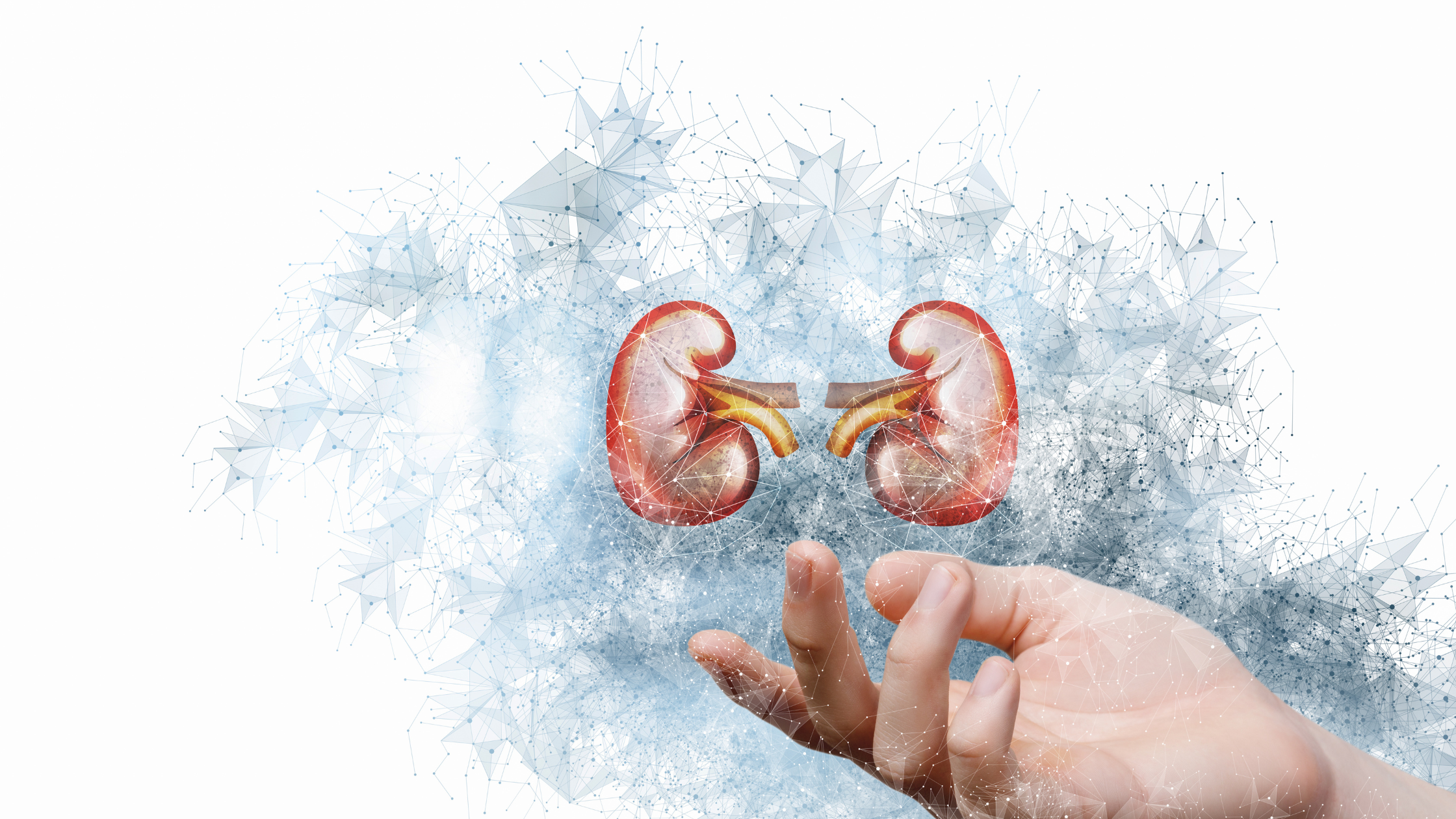Strategies for Early Detection and Effective Management of Chronic Kidney Disease

Chronic Kidney Disease (CKD) is a progressive condition characterized by the gradual loss of kidney function over time. It affects millions worldwide and is associated with significant morbidity, mortality, and healthcare costs. Early detection and effective management are critical to slowing disease progression, improving patient outcomes, and reducing the burden on healthcare systems. This article explores a comprehensive approach to the detection and management of CKD, emphasizing evidence-based strategies for healthcare providers and patients.
Understanding Chronic Kidney Disease
CKD is defined as abnormalities in kidney structure or function persisting for more than three months, often measured by a reduced glomerular filtration rate (GFR) or evidence of kidney damage, such as proteinuria. The condition is classified into five stages based on GFR, ranging from Stage 1 (normal or high GFR) to Stage 5 (kidney failure). Common causes include diabetes, hypertension, glomerulonephritis, and polycystic kidney disease. Risk factors such as obesity, smoking, and a family history of kidney disease further increase susceptibility.
CKD often remains asymptomatic in its early stages, making proactive screening essential. If undetected, it can progress to end-stage renal disease (ESRD), requiring dialysis or transplantation. Early intervention can significantly delay or prevent this outcome, underscoring the importance of a systematic approach to detection and management.
Read more: Korean Skincare for Dry Acne Prone Skin: Anti-Inflammatory Korean Recipes
Detection of Chronic Kidney Disease
1. Screening High-Risk Populations
Early detection begins with identifying individuals at risk. Populations with diabetes, hypertension, cardiovascular disease, or a family history of CKD should be prioritized for screening. Guidelines from organizations like the National Kidney Foundation recommend annual screening for high-risk groups, including older adults and those with autoimmune diseases or recurrent urinary tract infections.
Screening typically involves two key tests:
-
Serum Creatinine and Estimated GFR (eGFR): Serum creatinine levels are used to calculate eGFR, which estimates kidney function. The Chronic Kidney Disease Epidemiology Collaboration (CKD-EPI) equation is commonly used for accuracy.
-
Urine Albumin-to-Creatinine Ratio (ACR): This test detects albuminuria, an early marker of kidney damage. An ACR ≥30 mg/g suggests early CKD.
Routine blood and urine tests during primary care visits can identify abnormalities before symptoms emerge, enabling timely intervention.
Read more: 7 Smoothies for Chronic Knee Pain Relief: Nutrient-Packed Recipes to Start Your Day
2. Diagnostic Evaluation
Once abnormalities are detected, further evaluation is necessary to confirm CKD and identify its cause. This may include:
-
Imaging Studies: Ultrasound or CT scans can detect structural abnormalities like polycystic kidneys or obstructions.
-
Kidney Biopsy: In cases of suspected glomerulonephritis or unclear etiology, a biopsy may be warranted.
-
Additional Blood Tests: Tests for electrolytes, hemoglobin, and parathyroid hormone levels help assess complications like anemia or bone disease.
Accurate staging using eGFR and ACR guides treatment decisions and prognosis. For example, Stage 3 CKD (eGFR 30–59 mL/min/1.73 m²) often requires more aggressive management than Stage 1 or 2.
3. Challenges in Detection
Despite the availability of screening tools, challenges remain. Many patients lack access to healthcare, particularly in low-resource settings. Additionally, variability in laboratory measurements and the use of different eGFR equations can complicate diagnosis. Healthcare providers must also be vigilant for atypical presentations, as CKD can manifest subtly, especially in older adults.
Management of Chronic Kidney Disease
Effective management of CKD aims to slow disease progression, manage complications, and improve quality of life. A multidisciplinary approach involving nephrologists, primary care providers, dietitians, and pharmacists is essential.
1. Lifestyle Modifications
Lifestyle changes are a cornerstone of CKD management. Key recommendations include:
-
Dietary Adjustments: A low-sodium, low-protein diet can reduce kidney workload and control blood pressure. Patients with advanced CKD may need to limit potassium and phosphorus intake to prevent complications like hyperkalemia and bone disease.
-
Weight Management and Exercise: Maintaining a healthy weight and engaging in moderate physical activity can improve cardiovascular health, a critical consideration given the high prevalence of heart disease in CKD patients.
-
Smoking Cessation and Alcohol Moderation: Smoking accelerates kidney damage, while excessive alcohol can exacerbate hypertension. Counseling and support programs can aid in cessation.
2. Pharmacological Interventions
Medications play a vital role in managing CKD and its comorbidities:
-
Blood Pressure Control: Angiotensin-converting enzyme inhibitors (ACEIs) or angiotensin receptor blockers (ARBs) are first-line agents for hypertension in CKD, as they reduce proteinuria and slow disease progression. Careful monitoring is needed to avoid hyperkalemia or acute kidney injury.
-
Glycemic Control: For diabetic patients, maintaining hemoglobin A1c levels below 7% can protect kidney function. Sodium-glucose cotransporter-2 (SGLT2) inhibitors have shown promise in slowing CKD progression in diabetic nephropathy.
-
Management of Complications: Erythropoiesis-stimulating agents treat anemia, while phosphate binders and vitamin D analogs address mineral and bone disorders.
3. Monitoring and Follow-Up
Regular follow-up is critical to assess disease progression and adjust treatment. Patients with Stage 1–2 CKD may require annual monitoring, while those with Stage 3–5 need more frequent visits. Monitoring includes eGFR, ACR, blood pressure, and laboratory markers of complications. Patient education on self-monitoring, such as tracking blood pressure at home, enhances adherence to treatment plans.
4. Advanced CKD and Renal Replacement Therapy
In Stage 5 CKD, renal replacement therapy (RRT) may be necessary. Options include:
-
Dialysis: Hemodialysis or peritoneal dialysis can sustain life but requires significant lifestyle adjustments.
-
Kidney Transplantation: Transplantation offers better long-term outcomes but is limited by donor availability and patient eligibility.
Early referral to a nephrologist (ideally when eGFR <30 mL/min/1.73 m²) ensures timely preparation for RRT, including vascular access creation or transplant evaluation.
Patient-Centered Care and Education
Empowering patients through education is crucial. Patients should understand their diagnosis, the importance of adherence to treatment, and the role of lifestyle changes. Shared decision-making fosters trust and improves outcomes. Support groups and counseling can address the psychological burden of living with a chronic illness, particularly for those facing dialysis or transplantation.
Emerging Trends and Future Directions
Advances in CKD detection and management are promising. Biomarkers like cystatin C and novel imaging techniques may improve diagnostic accuracy. Precision medicine, including genetic profiling, could enable tailored therapies. Additionally, wearable devices and telehealth platforms are enhancing remote monitoring, particularly in underserved areas.
Public health initiatives aimed at raising awareness and improving access to screening are also critical. Addressing social determinants of health, such as poverty and limited healthcare access, will further reduce the CKD burden.
Conclusion
The approach to the detection and management of Chronic Kidney Disease requires a multifaceted strategy encompassing early screening, accurate diagnosis, and comprehensive management. By prioritizing high-risk populations, leveraging diagnostic tools, and implementing evidence-based interventions, healthcare providers can significantly improve patient outcomes. Lifestyle modifications, pharmacological therapies, and timely referral to specialists are key components of effective CKD management. As research and technology advance, the ability to detect and treat CKD will continue to evolve, offering hope for better quality of life for millions affected by this condition. Patients and providers must work collaboratively to navigate the challenges of CKD, ensuring early intervention and sustained care to mitigate its impact.










